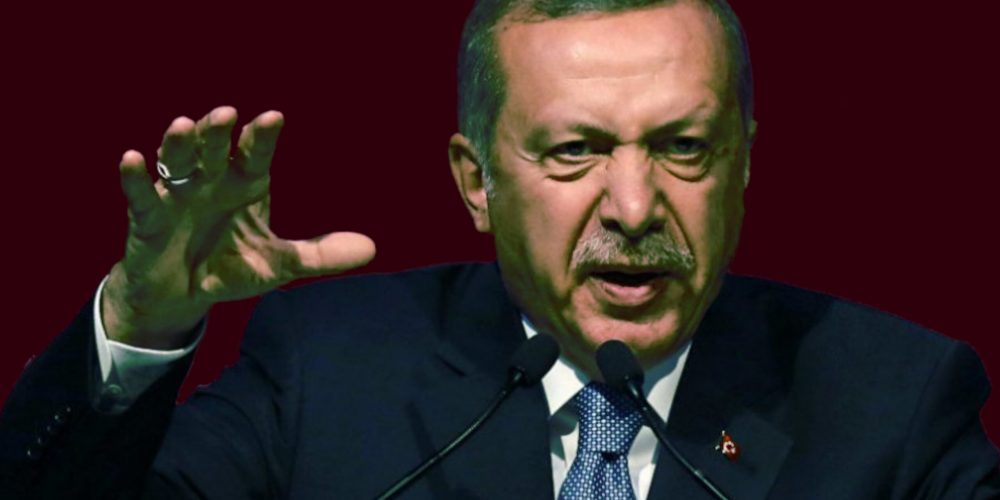The authoritarian transformation of a country
As YPJ we made a pledge to defend the women and people of North and East Syria. The aggression of the Turkish state towards our land and people is one of the biggest threats to our region. The upcoming election could lead to a change in Turkish foreign policy, and so we are monitoring the situation. In the first of our three-part series of articles we look at the situation in Turkey after five years of AKP-MHP rule.
Over the last 20 years, in which Recep Tayyip Erdoğan has been ruling Turkey, the crisis within the country has worsened on many levels. In the 2018 parliamentary elections Erdoğan’s AKP had lost the absolute majority, but he saved his seat in power via an alliance with the ultra-nationalist and extreme-right Nationalist Movement Party (MHP). From the very beginning this alliance was based on anti-Kurdish politics, corruption, misogyny and expansionism causing massacres, illegal occupations and war. After the 2018 elections, Erdoğan transformed Turkey’s government into a presidential system, that gave him absolute power to rule the country in an authoritarian, centralized way. This meant he was able to appoint his government without parliament’s approval.
Turkey – a prison state
The extreme authoritarian transformation of the government has led to a severe lack of judicial independence. The political bans against leftist, humanist and women’s institutions have turned Turkey’s political landscape into a monolithic bloc, silencing any critical opinion. Opponents are threatened by the government and the prisons have been filled with women’s rights defenders, opposition politicians, Kurdish activists and anyone who speaks up against the government. Even though the European Court of Human Rights has ruled that prisoners like HDP’s former co-chair, Selahattin Demirtas, and human rights defender, Osman Kavala, should be freed, the AKP-MHP regime keeps them detained. The Turkish state has become the world’s largest prison for journalists with the majority of the media being controlled by Erdoğan. Within the prisons, there are severe human rights violations.
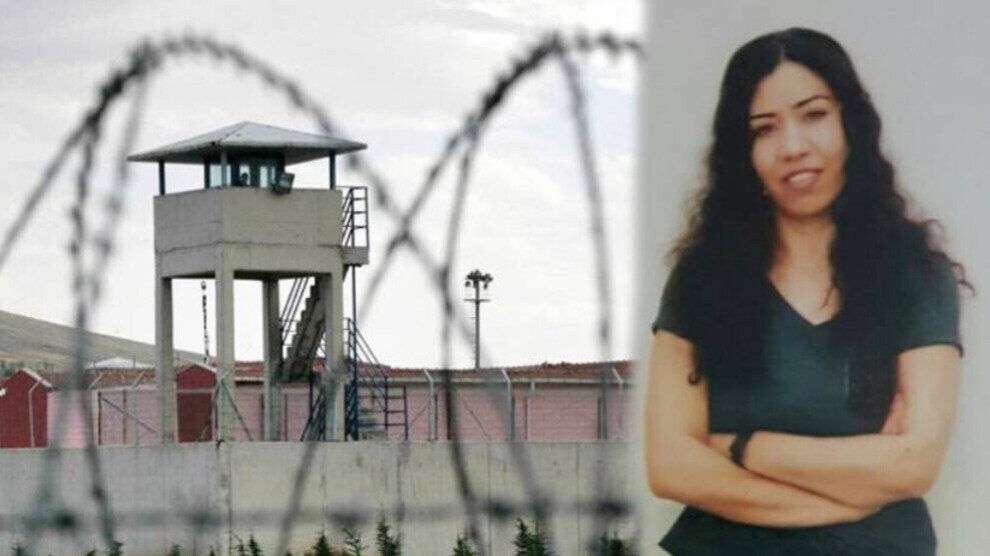
Within the prisons, there are severe human rights violations. Sick prisoners are prevented from being treated. The Ankara seated Human Rights Association IHD issued the special report “Recommendations on Amendments to the Enforcement Law Concerning Sick Prisoners” in January 2023. One of the findings of the report is that especially sick prisoners who are convicted under the Anti-Terrorism Law are facing discrimination and therefore their health problems become more serious. The Anti-Terrorism Law is especially used against democratic activists, HDP members, Kurds, women rights defenders and journalists. There is also a raise in numbers of sick prisoners dying while being imprisoned.
Additionally, there are numerous reports of torture and sexual abuse, like in the case of Kurdish political prisoner Garibe Gezer who had been sexually tortured in the Kandıra Prison in Turkey’s western Kocaeli province. For a long time, Garibe Gezer had tried to publicize the sexual torture that she was subjected to. On December 9, 2021 she died under suspicious circumstances. After her death, the women’s news agency JinNews released a footage showing how guards were mistreating her.
Targeting women as a strategy to suppress democratic developments
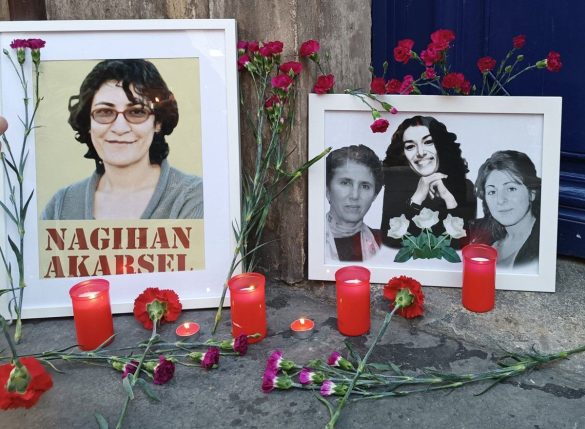
Intelligence that resounded
throughout the world
The authoritarian government of AKP-MHP is targeting women especially. Following a fundamentalist interpretation of Islam, Erdoğan has publicly commented on women’s role in society. Erdoğan’s attitude towards women is reflected in his statements that pregnant women should not go out on the streets, that a woman’s smile is a means of provoking men and that every woman should marry and deliver at least three children. The parts of society who follow this extreme patriarchal thinking see women who are not willing to behave accordingly, as needing to be punished.
Turkey’s withdrawal from the Istanbul Convention to Combat Violence Against Women, the violent attacks on women’s demonstrations and feminist protests, the governments complete failure to prevent femicides, the ban on women’s media institutions, the attack on the equal representation of women within the co-chair system, and the closing of women’s institutions are all attacks on the free will of women, their identity, and expression.
Erdoğan is afraid of the women’s movement in Kurdistan that has been a core part in building up the revolution in North and East Syria. Turkey has a long history of assassinating vanguards of the women’s struggle. Killing female leaders became one of Turkey’s tactics to suppress any democratic development, such as that of HDP worker Deniz Poyraz, killed at the HDP headquarters in Konak/Izmir, or Kurdish intellectual Nagihan Akarsel who was shot by the Turkish secret service in Sulaymaniyah, as well as countless killings of revolutionary women in North and East Syria. As the Women’s Protection Units we are not just defending the women of North and East Syria, but feel responsible for the situation of women everywhere. This is why Turkey did also target our members. In 2022 alone, the Turkish state assassinated eight of our YPJ members, using drone strikes to target their vehicles – all in non-combative situations.
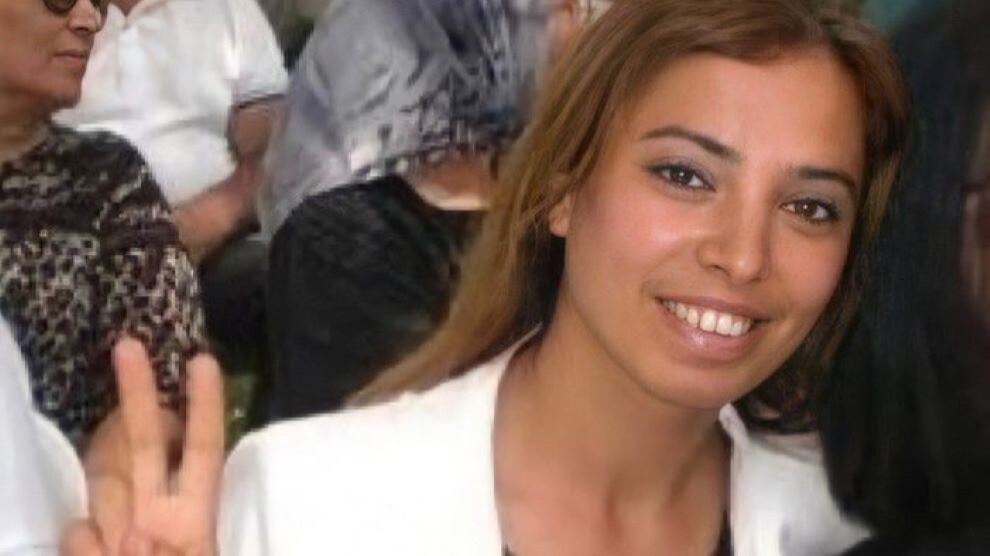
Under AKP-MHP rule, Turkey has entered a serious economical crisis
In the first years of his rule, Erdoğan said: “The poor are poor because they don’t know how to steal”. These words became true regarding his own person. There are countless examples in which he enriched himself while the people became impoverished. Erdoğan holds dozens of secret bank accounts and millions of dollars were transferred to a private company established on the Isle of Man (a British tax haven), by Erdoğan’s brother-in-law, his son-in-law, his former chief of staff and his son – all while the people of Turkey face one of the worst economical crises, with inflation reaching a 25-year record-high of 85.51% in October last year. Joblessness and poverty reached a level that forced families to stop sending their children to school and make them go to work instead. There are also widespread doubts if the money given by the EU in the “refugee deal”, as well as the money that the EU paid Turkey in order to to adopt European standards to enter the union, was used accordingly. Related to the 10 billion dollars that the EU gave to Turkey in order to adapt to European standards, the European Court of Auditors published a report in 2018 mentioning that the pre-accession assistance to Turkey were showing limited results. The Turkish authorities failed to sufficiently address the problems of judicial independence, press freedom and civil society, due to a lack of effort from Turkey. One of the reasons the report mentions is the lack of political will and effort. It is plausible that these funds have been used for other purposes, including enriching the government and financing the occupation and wars in Syria and Iraq.
February 6 earthquake – a disaster worsened by the government
The February 6 earthquake was a great catastrophe, not just because of the earthquake itself but because of the government’s unwillingness to provide help for the people. Tens of thousands were trapped under the rubble and were literally left to face death while the Turkish Red Crescent sold earthquake tents for money. Aid transportation was cut off and the aid to be provided was turned into election propaganda by ensuring that the only aid reaching the struck areas was from the ruling party. Due to corruption in the construction sector, buildings were built cheaply rather than safely for earthquakes. After the 1999 earthquake, the Turkish state collected an earthquake tax.
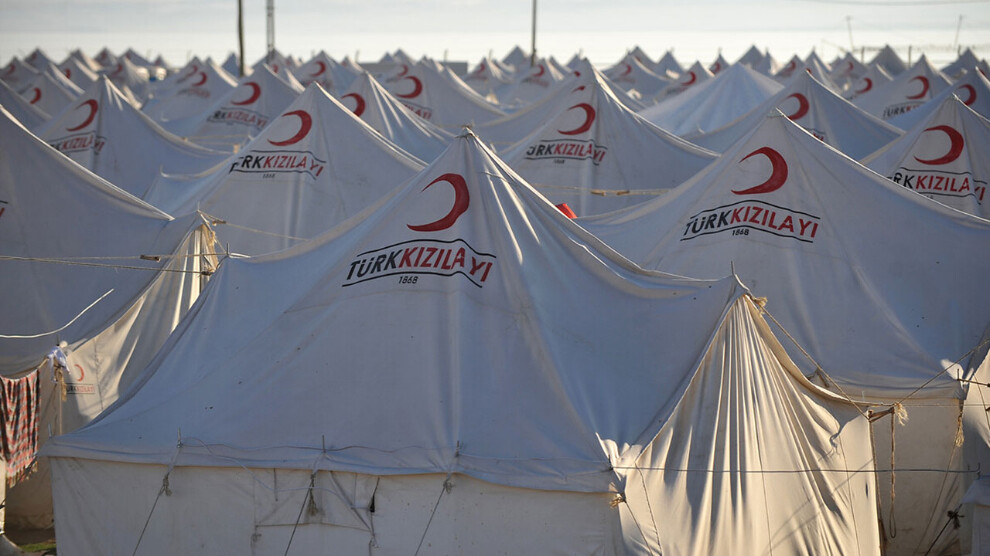
What became clear however, is that this money was used for military expenses in the war against Kurdistan. The declaration of a state of emergency shortly after the earthquake banned all media, except those controlled by the ruling party, from covering the earthquake. Even social media services like Twitter, that people used for finding missed family members, were out of service for several hours. Besides this, the Turkish state promoted handing over hundreds of orphan children – or those who they thought were orphans due to poor registration – to Islamist organizations such as the Erdoğan controlled Ensar Foundation known by a major child sexual abuse scandal. Additionally, the government promoted a misinformation campaign against Syrian refugees who were accused of looting destroyed homes and stealing aid. Blaming, brutal attacks and attempts of lynching were all outcomes of the governments use of Syrian refugees as convenient scapegoats.
Anti-Kurdish politics as a core element of the AKP-MHP’s politics
The AKP-MHP regime’s policy toward the Kurds is based on denial and annihilation. It does everything it can to repress any Kurdish quest for self-determination. This policy is especially used against the Kurdish People’s Leader, Abdullah Öcalan, who committed his life to the struggle for self-determination, not just for the Kurdish people, but for all the peoples of the Middle East. The Turkish state keeps him in solitary confinement on the prison island of Imrali, where he was imprisoned in 1999. For over two years, there has been no information about his situation. The Turkish state uses the severe isolation and the deprivation of any kind of legal support, family visits, and communication with the outside world as a playing card against the entire Kurdish People.
In Southern Kurdistan/Northern Iraq, the Turkish state uses forbidden chemical weapons against the guerrilla fighters in the mountains. In October 2022, a video published by the guerrilla forces showed two of their fighters suffering from the effects of chemical exposure before they lost their lives. Although there is plenty of video evidence of Turkey’s usage of chemical weapons in Southern Kurdistan, and the International Physicians for the Prevention of Nuclear War noting evidence that support these claims, the international community is failing to act.
The HDP (“Peoples’ Democratic Party”), for whom 6 million people voted in the 2018 elections, seeks to solve the Kurdish Question by offering a democratic perspective for the whole of Turkey. The HDP is confronted with arrests, legal processes and banning attempts. Elected mayors of the party have forcefully been replaced by government-appointed administrators, and thousands of HDP members are imprisoned. Restricting the Kurdish language, attacking Kurdish festivities, and repressing expressions of the Kurdish identity seek to attack the very identity of the Kurds. Subordinating to the government’s nationalist agenda by giving up one’s cultural identity is promoted to cover up anti-Kurdish racism. Next to the Kurds, other ethnic and religious groups that are seen as disturbing to the ultra-nationalist agenda, are also targeted. Alevis, Yazidis, Syriacs, and Armenians are endangered by Turkey’s politics – not just within the borders of Turkey but also in the neighboring countries.
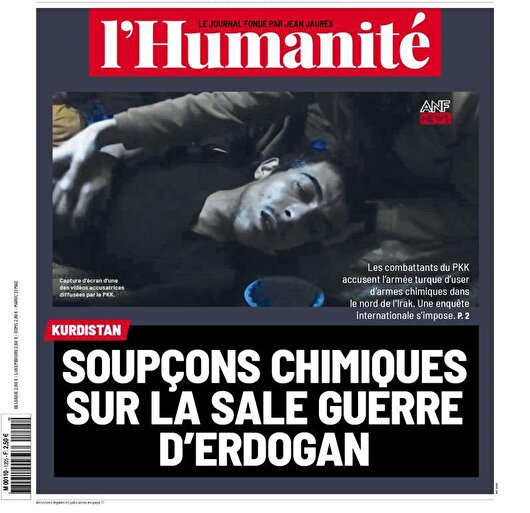
The AKP-MHP’s war against the Kurdish people is highly influencing Turkey’s foreign policy. After Sweden and Finland applied to join NATO in May 2022, Turkey vetoed the entry of Sweden and initially that of Finland. Turkey stated that both countries harbor members of what it considers a terrorist group. Again, Turkey used the geopolitical situation to its advantage and demanded that Finland and Sweden extradite Kurdish activists to Turkey as conditions of their NATO membership.
It became clear that this government
is not caring about its people
In the time after the 2018 elections, the AKP-MHP rule pushed forward an extreme authoritarian transformation of the Turkish state, militarized the country, exacerbated the economic crisis, worsened the situation of women, and aggravated and caused social problems. It became clear that this government is not caring about its people, but rather is following a fanatic ideology that seeks to expand the dream of a new Ottoman Empire in the Middle East. Turkey’s aggressive politics continue towards the European Union also, as seen within its threats against Greece, culminating in Erdogan saying in December 2022 that a missile could hit Athens. In order to reach its aims, the Turkish government uses all means possible such as chemical weapons, the illegal occupations in Kurdistan, Iraq, Syria as well as it’s military intervention in Libya, and its support for Azerbaijan’s war against Armenia over Nagorno-Karabakh.
Read about how the AKP-MHP’s rule impacts North and East Syria in the second part of our series of articles.

